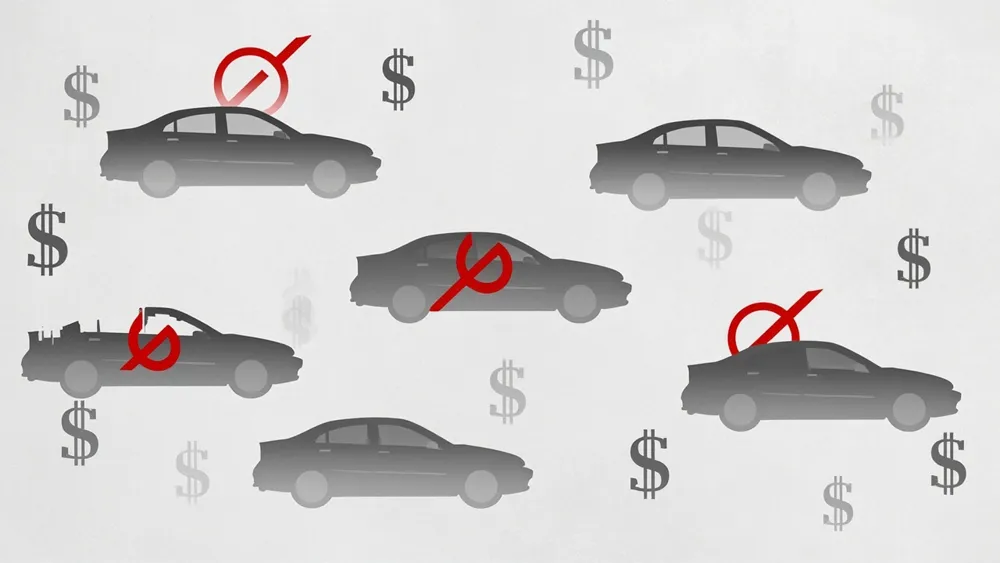Senate GOP tax bill offers car loan interest break, but excludes some vehicles

The recently proposed Senate GOP tax bill presents a momentous policy shift in the realm of automotive finance, extending a tax deduction for auto loan interest, albeit with significant limitations. This measure, part of a multitrillion-dollar tax package aimed at introducing broad fiscal reforms, stands to directly affect consumer behavior, particularly among low- and middle-income families aspiring to achieve car ownership. As policymakers seek to navigate the complexities of tax reform while attempting to stimulate economic activity, understanding the nuances of this proposal is essential for all stakeholders in the automotive market and consumer credit sector.
The key feature of this legislation is the provision allowing taxpayers to deduct up to $10,000 of auto loan interest from their taxable incomes from 2025 through 2028. However, the deduction is limited to loans on new vehicles—excluding used cars altogether. This could fundamentally skew the landscape of car ownership, as evidence suggests that lower-income families often rely on the used-car market: a 2023 UCLA survey notes that 61% of such households purchased used vehicles. By concentrating benefits on new cars, the legislation might deepen financial disparities, inadvertently restricting access for those who need it most and raising a pivotal question: Can a tax break, designed to promote car ownership, truly serve its intended purpose if it primarily advantages wealthier consumers?
Moreover, potential buyers face additional headwinds from the tariffs imposed on imported vehicles and parts. Current estimates suggest these tariffs could hike vehicle prices, effectively neutralizing the value of the tax deduction for many consumers. For instance, according to the average loan interest figure reported by AAA, drivers are already paying over $1,300 annually. Therefore, if a significant number of households find that the enhanced tax deduction becomes inconsequential due to inflated car prices, the intended economic stimulus may fall flat. Historically, one can draw parallels with the 2008 financial crisis, where consumer debt levels rose and financial products became misaligned with borrower capabilities, ultimately leading to market distress.
In conclusion, while the Senate’s tax plan aims to promote consumer goods through incentivization, its efficacy may be hampered by structural limitations and unintended consequences. The dichotomy of benefit distribution—favoring new vehicle purchases while sidelining low-income families—could adversely affect both consumer sentiment and market dynamics in the automotive sector. Investors in the automotive space and consumer credit sectors should remain vigilant, as evolving consumer behavior may signal broader shifts in economic confidence. As the bill progresses, all stakeholders—from consumers, who seek affordable options and financial relief, to regulators, aiming to curtail inequity—should engage in critical discourse to ensure that fiscal policies foster inclusive growth rather than solidify existing economic divides.
Read These Next

China-Laos Railway Drives Economic Growth in Laos
The China-Laos Railway, initiated in 2021, boosts Laos' infrastructure, economy, and agricultural trade, enhancing logistics and investments.

Financial Performance Analysis: Q1 2025 Earnings of a Leading Materials Sector Company
This article analyzes the financial performance and outlook of a materials sector company, highlighting its recent strategic business changes, key financial metrics, and the current challenges it faces.

Chinese Consumers Struggle with Spending Amid Economic Challenges
This article discusses the ongoing reluctance of Chinese consumers to spend money, focusing on factors such as stagnant income growth, cultural saving habits, and the challenges posed by the current economic environment. It emphasizes the need for targeted recovery strategies to stimulate consumer confidence and spending, while acknowledging the risks associated with existing socio-economic disparities.
